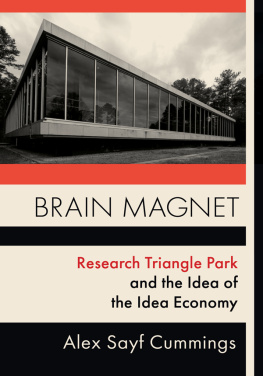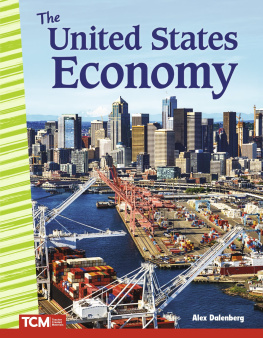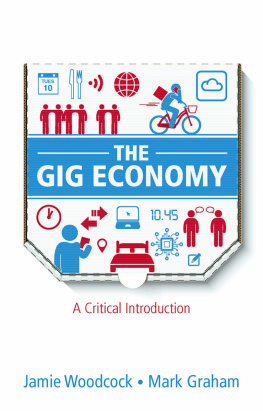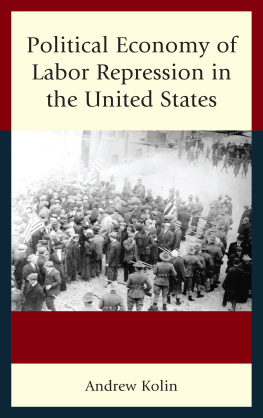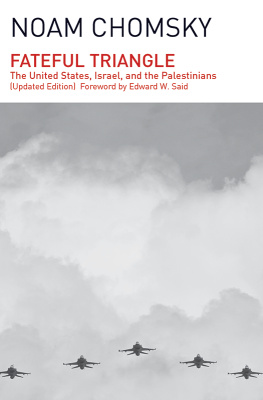Table of Contents
Brain Magnet
Columbia Studies in the History of U.S. Capitalism
Columbia Studies in the History of U.S. Capitalism
Series Editors: Devin Fergus, Louis Hyman, Bethany Moreton, and Julia Ott
Capitalism has served as an engine of growth, a source of inequality, and a catalyst for conflict in American history. While remaking our material world, capitalisms myriad forms have alteredand been shaped byour most fundamental experiences of race, gender, sexuality, nation, and citizenship. This series takes the full measure of the complexity and significance of capitalism, placing it squarely back at the center of the American experience. By drawing insight and inspiration from a range of disciplines and alloying novel methods of social and cultural analysis with the traditions of labor and business history, our authors take history from the bottom up all the way to the top.
Capital of Capital: Money, Banking, and Power in New York City, 17842012, by Steven H. Jaffe and Jessica Lautin
From Head Shops to Whole Foods: The Rise and Fall of Activist Entrepreneurs, by Joshua Clark Davis
Creditworthy: A History of Consumer Surveillance and Financial Identity in America, by Josh Lauer
American Capitalism: New Histories, edited by Sven Beckert and Christine Desan
Buying Gay: How Physique Entrepreneurs Sparked a Movement, by David K. Johnson
City of Workers, City of Struggle: How Labor Movements Changed New York, edited by Joshua B. Freeman
Banking on Freedom: Black Women in U.S. Finance Before the New Deal, by Shennette Garrett-Scott
Threatening Property: Race, Class, and Campaigns to Legislate Jim Crow Neighborhoods, by Elizabeth A. Herbin-Triant
How the Suburbs Were Segregated: Developers and the Business of Exclusionary Housing, 18901960, by Paige Glotzer
Brain Magnet
Research Triangle Park
and the
Idea of the Idea Economy
Alex Sayf Cummings
Columbia University Press New York
Columbia University Press
Publishers Since 1893
New York Chichester, West Sussex
cup.columbia.edu
Copyright 2020 Columbia University Press
All rights reserved
E-ISBN 978-0-231-54574-7
Library of Congress Cataloging-in-Publication Data
Names: Cummings, Alex Sayf, author.
Title: Brain magnet : Research Triangle Park and the idea of the idea economy / Alex Sayf Cummings.
Other titles: Columbia studies in the history of U.S. capitalism.
Description: New York : Columbia University Press, 2020. | Series: Columbia studies in the history of U.S. capitalism | Includes bibliographical references and index.
Identifiers: LCCN 2019047171 (print) | LCCN 2019047172 (ebook) | ISBN 9780231184908 (cloth) | ISBN 9780231184915 (paperback) | ISBN 9780231545747 (ebook)
Subjects: LCSH: Research Triangle Park (N.C.)History. | Knowledge economyNorth CarolinaResearch TriangleHistory. | TechnologyResearchNorth CarolinaResearch TriangleHistory.
Classification: LCC HC79.I55 C87 2020 (print) | LCC HC79.I55 (ebook) | DDC 338.4/7609756dc23
LC record available at https://lccn.loc.gov/2019047171
LC ebook record available at https://lccn.loc.gov/2019047172
A Columbia University Press E-book.
CUP would be pleased to hear about your reading experience with this e-book at .
Cover image: American Association of Textile Chemists and Colorists (AATCC) Technical Center, Research Triangle Park, North Carolina
Cover design: Lisa Hamm
For Saira
Because we are the last, best hope for this nations future.
We are the creative economy.
And we will prevail!
Gary Shteyngart, Super Sad True Love Story
Contents
This story originated in an idea for a dissertation topic and then became the dreaded second book. I have complained a great deal. To those who somehow put up with this, I feel immeasurable gratitude.
I cannot thank my PhD advisers, Betsy Blackmar and Barbara Fields, enough for always sticking with me and always asking tough questions when my ideas were not good. Ive had the great fortune to benefit from the insight of numerous respected scholars, including Ed Balleisen, Peter Coclanis, David Farber, Bill Graves, Margaret Pugh OMara, Elizabeth Tandy Shermer, Bryant Simon, and Siva Vaidhyanathan. As editors, both Susan Ferber and Joseph Parsons nurtured this project before it was even a real thing, and both Bridget Flannery-McCoy and Stephen Wesley at Columbia University Press offered stalwart support and thoughtful guidance that went a long way toward strengthening the manuscript once it was. The series editors, Devin Fergus, Louis Hyman, Bethany Moreton, and Julia Ott, have also been tremendously helpful.
Many librarians and archivists gave their time to this book at critical junctures, most notably Lynn Richardson at the Durham County Library, Jason Tomberlin at the University of North Carolina at Chapel Hill, and Matthew Not Matthew Farrell at Duke University. Eileen McGrath interrupted her retirement to help me build a picture of how the Triangle has been portrayed in fiction. (If this book ever gets finished, I told Eileen in 2016, expect to see your name in big, bold, italic, flashing letters in the Acknowledgments. I tried.)
An incredible array of interviewees made this project possible, including Nazeeh Z. Abdul-Hakeem, Saima Afzal, Mayor Bill Bell, Jeffrey Billman, Jay Bigelow, Buckley Crist, Sol Ellis, Representative Nick Galifianakis, Bob Geolas, Ferrel Guillory, Geoffrey Harpham, Tyran Hill, Farooq and Zubaida Mazhar, David Menconi, Jerry Miller, Bill Mitchell, Smita Patel, Sarah Taber, Chuck Till, Kristie VanAuken, and Tom Wenger. The project was also generously supported with real money by the North Caroliniana Society, the American Council of Learned Societies, the Mellon Foundation, and the College of Arts and Sciences at Georgia State University.
In the end, my friends have suffered the most. My colleagues Rob Baker, Marni Davis, Matt Lasner, Jared Poley, Jeffrey Trask, and Kate Wilson have been endlessly helpful, as have my dearest friends and collaborators, Joel Suarez, Romeo Guzmn, Aimee Castenell, Jeena Patel, Tyler Singh, Tanya Martinez, Michelle Lacoss, R. Mike Burr, Mary Rolinson, Christopher Staaf, Ryan Prechter, and Stanley Thangaraj. My parents, Andy and Sandy Shepherd and Taher and Crystal Zarti, have sustained me with their perpetual love and confidence in my questionable abilities.
But more than anyone, Saira Mazhar was there the entire way, always present with the greatest patience and insightalways, to steal from the novelist Edwin OConnor, listening, rejoicing, consoling, advising, exhorting, tempering, laughing, loving, living.
Farooq and Zubaida Mazhar got their first taste of America in 1978. It was the poor, tiny town of Ahoskie in eastern North Carolina, where Farooqs brother Iqbal had started practicing as an eye doctor not long before. Their American odyssey included a cross-country road trip with the extended family that took them from the Carolinas to California and ended with an RV that burst into flames in Salinas, Kansas. (Thankfully, everyone survived.)
Farooq and Zubaida hailed from Karachi, the vast Pakistani metropolis on the shores of the Arabian Sea. The couple brought their growing family to Chicago in 1985, where Farooqs other brother, Masood, lived, and started a business selling womens handbags, jewelry, and various tchotckes from South Asia. But the bitter cold of Chicago winters turned out to be too much for the family, who were accustomed to the practically sliceable heat and humidity of Karachi, and so they returned home.

